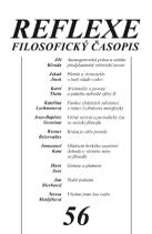Poznámka 6
K. R. Popper, Otevřená společnost a její nepřátelé, I, přel. M. Calda, Praha 1994, str. 89–90. Podle Poppera Platón užívá pojem „spravedlnost“ (dikaiosyné) ve zcela jiném slova smyslu, než je jeho běžný význam. Podobně D. Sachs, A fallacy in Plato’s Republic, in: Philosophical Review, 72, 1963, str. 141–158 upozorňuje, že není jasné, jak spolu souvisí spravedlnost jako harmonie složek se spravedlností v běžném slova smyslu, kdy hovoříme o spravedlivě jednající osobě či spravedlivě uspořádané obci. K této debatě viz např. R. Demos, A Fallacy in Plato’s Republic?, in: The Philosophical Review, 73, 1964, str. 395–398; J. Schiller, Just Men and Just Acts in Plato’s Republic, in: Journal of the History of Philosophy, 6, 1968, str. 1–14; G. Vlastos, Justice Pays; G. Vlastos, Justice and Psychic Harmony in the Republic (= Justice and Psychic Harmony), in: The Journal of Philosophy, 66, 1969, str. 505–521; G. Vlastos, The Theory of Social Justice in the Polis in Plato’s Republic (= The Theory of Social Justice), in: G. Vlastos (vyd.), Studies in Greek Philosophy,II, Princeton 1995, str. 69–103; R. Kraut, Reason and Justice in Plato’s Republic, in: E. N. Lee – A. P. D. Mourelatos – R. M. Rorty (vyd.), Exegesis and Argument, Assen – Van Gorcum 1973, str. 207–224; J. Annas, Plato and Common Morality, in: The Classical Quarterly (N. S.), 28, 1978, str. 437–451; E. Brown, Minding the Gap in Plato’s Republic, in: Philosophical Studies, 117, 2004, str. 275–302; R. G. K. Singpurwalla, Plato’s Defense of Justice in the Republic (= Plato’s Defense), in: G. Santas (vyd.), The Blackwell Guide to Plato’s Republic, Maden – Oxford 2006, str. 263–282.
Zpět na článek: Reflexe 45:Spravedlnost a přirozenost v Platónově Ústavě
